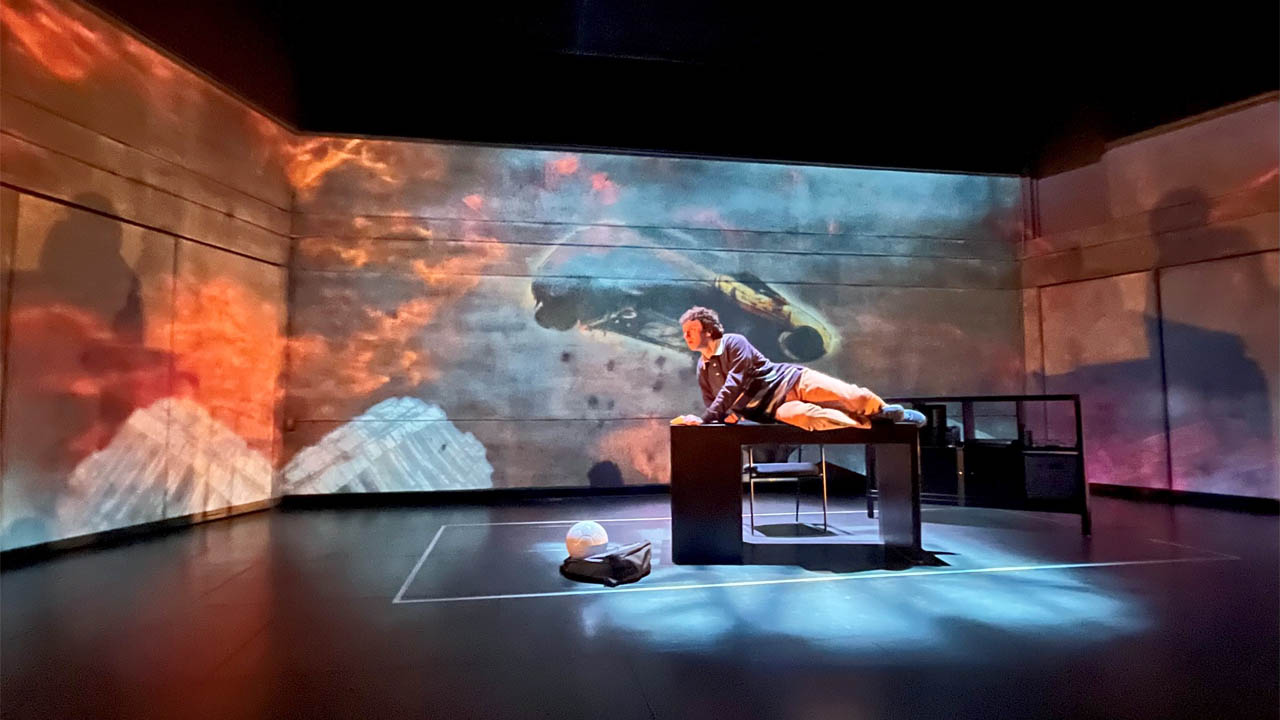The horrors of war on stage: A review of Homes: A Refugee Story
 CREDIT: ZOË ALEXANDRA KING
CREDIT: ZOË ALEXANDRA KINGHomes: A Refugee Story was performed at The Grand theatre spreading Abu Bakr Al- Rabeeah's true story even further.
It’s no surprise that I absolutely love visiting The Grand. The feeling of everyone coming together to appreciate and enjoy the productions performed right in front of us is one I don’t think I will ever get sick of. The production I recently saw, Homes: A Refugee Story, was my very first one-actor show and wow, did it supersede my expectations! The show played on the Auburn Stage from Feb. 22 – March 5.
You hear about wars that occur throughout the world and hope to never experience being caught in the middle of one. Only until recently were we able to have increased videos and photographs updating us on what it looks like during the Ukraine and Russia war. These videos that are taken not only by professionals but also by individuals who are simply living through the crisis.
Watching this performance written by Winnie Yeung and Haysam Kadri gave me a stronger insight on what it’s like living through a war, more than any image or video that I’ve seen thus far. The play is based on a book, written by Abu Bakr Al-Rabeeah and Winnie Yeung, documenting Al-Rabeeah’s real life experience living through the Syrian war. The play involves an amazing performance by Nabil Traboulsi (acting as Al-Rabeeah).
Traboulsi’s talented performance made me understand, to the best extent that I could, what life was like for Al-Rabeeah. We hear about the events and activities that take place in these wars, but do we really stop to think about what it means for the people in that country? In the case of Al-Rabeeah, the first time he experienced a bomb sent him rushing home and making sure that his family was safe. He also faced a time where he was in a mosque while a bomb was going off and no one broke prayer to tend to the chaos. Additionally, Al-Rabeeah was told by his father to not have any photographs in his phone of his family members, especially his sisters because of his fear of being put into further danger.
Finding bullet casings around the town was a game that he used to play with his friends. He would hear his father call immigration, seeking asylum for two years every Tuesday to try and get his family out of Syria and into Canada. These were some of the experiences that Al-Rabeeah faced as a child, experiences that many of us have not and probably will not live through.
Traboulsi also illustrated that while moving to Canada had tremendous benefits for Al-Rabeeah and his family, he did indeed face some challenges at the beginning. Not knowing English was hard for him to create friends in his new home and of course the change in environment was something he needed to adapt to. Connecting with his friends virtually was also a challenge at first but he eventually got to communicate with them through WhatsApp.
Leaving Syria on his way to Canada, someone in Al-Rabeeah’s life told him to tell his story. This, he succeeded in doing.
This performance educated me in more ways than one and reminded me of how lucky I am to not have experienced worrying about my family’s safety from terrorist attacks. It can be so easy to get caught up in our day-to-day lives and struggles that we forget to be mindful of everything that we do have.
Thank you, Abu Bakr Al-Rabeeah, for sharing your story and thank you to Traboulsi for performing this play and informing others.















